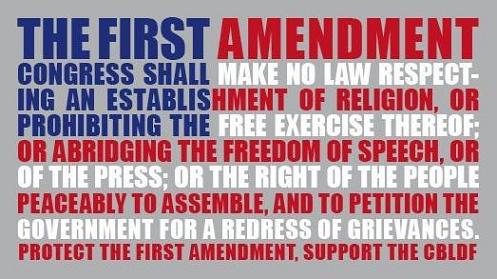I think it’s not entirely alarmist to say “everybody panic” right about now.
If you write for blogs, and have done for any reasonable amount of time, you’ve probably been sneered at with the oft-misspelled comment “what do you think you are, a journalist?” at some point or another. By and large, bloggers are fine with their sometimes mocked but undeniably freer status outside traditional journalistic boundaries, but one would hope that when reporting on an issue in good faith- whether your organization is a recognized media conglomerate or a scrappy start-up- the same protections apply, particular in a whistleblower-type situation.
One might be wrong, however, as one potentially precedent-setting ruling by US District Court Judge Marco Hernandez may imply. Blogger Crystal Cox and her series of muckraking websites came up on the wrong side of a lawsuit by investment firm Obsidian Finance Group after she posted several critical pieces about the company and its co-founder Kevin Padrick. Obsidian sued, and Judge Hernandez ruled that Cox was not entitled to the same protections reporters affiliated with moneyed institutions enjoyed.
Chilling for citizen journalism at all levels, in his ruling, Hernandez says:
“Although [the] defendant is a self-proclaimed ‘investigative blogger’ and defines herself as ‘media,’ the record fails to show that she is affiliated with any newspaper, magazine, periodical, book, pamphlet, news service, wire service, news or feature syndicate, broadcast station or network, or cable television system. Thus, she is not entitled to the protections of the law.”
The ruling could theoretically affect everyone who talks on the internet, from people like James, Duncan, Steven and myself to Yelp reviewers, message board posters and the like, if it isn’t challenged. As The Guardian points out, the ruling basically deems that there’s “one law for journalists and another for citizens”- which in the age of Twitter and Facebook, is very frightening indeed.
Cox was ordered to pay $2.5 million after her postings were found to be “defamatory.”



